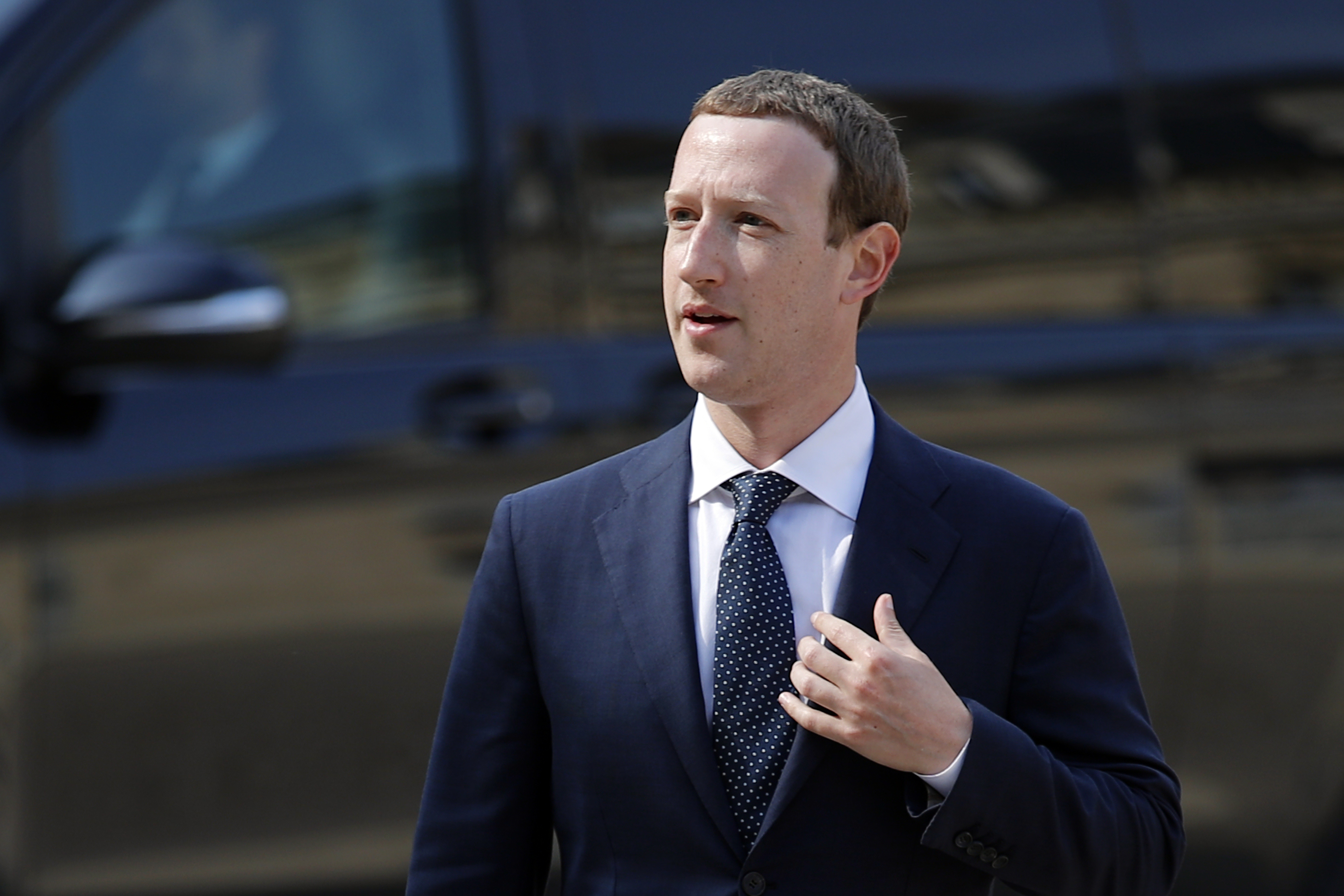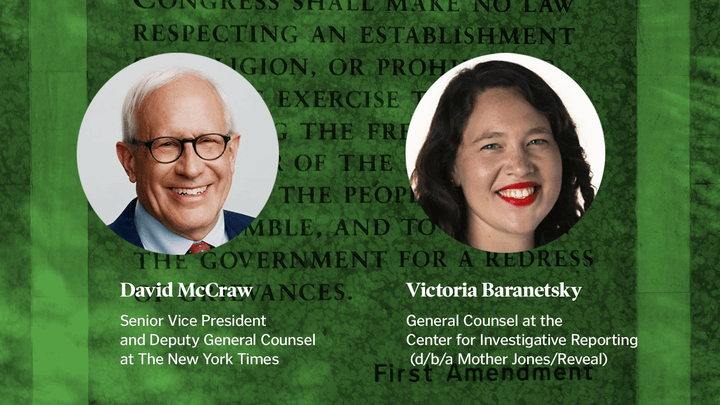Three weeks of bad press for Facebook
Facebook’s launch of a massive dataset for academics studying misinformation was overshadowed two weeks ago when it failed to sufficiently answer a question about why it still allows InfoWars on the platform.
After the debacle, Alexios wrote that — while asking why Facebook doesn’t take down notable conspiracists is a fair question — it’s not the most probing one, since the company has drawn a line on taking down content that is false only. In an interview with Recode’s Kara Swisher, CEO Mark Zuckerberg doubled down on those policies, saying the company wouldn’t even remove Holocaust deniers just because they’re wrong. The New York Times’ Farhad Manjoo pointed out how Facebook’s myriad rules for dealing with misinformation are seemingly opaque.
So last week Daniel analyzed how well Facebook is executing the commitments the company has explicitly said it will take to fight fake news, specifically by demoting the reach of hoaxes through its partnership with fact-checking projects. Looking at debunks about InfoWars and popular fake news site YourNewsWire, as well as each site’s Facebook engagement, he found that:
- The two publishers are still getting massive reach
- Fact-checkers are limiting the reach of flagged posts but it’s unclear whether or how Facebook’s efforts to demote these pages overall are working
- Fact-checkers are struggling to scale their work in partnership with Facebook
On Sunday, The Washington Post’s Margaret Sullivan wrote that — like it or not — Facebook does make editorial decisions by limiting the reach for some posts while boosting others, but those decisions aren’t always as simple as removing Holocaust denialism. So when BuzzFeed News’ Charlie Warzel asked the company why Alex Jones was allowed to baselessly accuse U.S. special counsel Robert Mueller of child rape and mime shooting him, Warzel got a typical, murky answer: It doesn’t violate Facebook’s community standards. Reporters didn’t get any better answers during a conference call on Tuesday.
On Wednesday, parents of one of the victims of the Sandy Hook Elementary School shooting published an open letter to Mark Zuckerberg demanding he do more to remove Holocaust deniers and other groups that openly attack survivors. The company's stock value dropped more than 20 percent Thursday morning. So what should Facebook do better? Axios’ Sara Fischer has some ideas.
This is how we do it
- Starting a new fact-checking project? Here’s some advice from seven of the world’s top fact-checkers.
- Brazilian fact-checker Aos Fatos has launched a Twitter bot that automatically corrects people when they share fake news.
- The IFCN was in Singapore this week for the Asia-Pacific Trust Media Summit, where Alexios conducted a training session.
This is bad
- As child kidnapping hoaxes continue to plague WhatsApp and inspire vigilantism in India (which could be attributed to bad policing), it seems the problem has reached Ireland and the United States, too.
- A doctored video of U.S. Democratic congressional candidate Alexandria Ocasio-Cortez is spreading on Facebook.
- On Amazon, counterfeit items with imitation packaging are hijacking small brands’ own listings.

This is fun
- The Onion continues to satirize Facebook’s approach to misinformation.
- TFW Marcus Aurelius pops up in an Irish Times correction.
- Who is the richest Harvard dropout of them all? Also on the corrections beat: Yuck.
Coming up
- API is hiring a new director of accountability journalism. Apply ASAP if you want to work on projects related to fact-checking, trust, transparency, and investigative reporting (and co-author this newsletter.)
- The IFCN has launched a flash grant for fact-checking projects in the Asia-Pacific region. Apply by Aug. 13 for the chance to win $10,000 to execute one big idea.
- In partnership with Agência Lupa, the IFCN is leading two free training workshops with Brazilian journalists who are fact-checking the upcoming election. Register here for the workshops, which will be held in Recife on Aug. 20.

A closer look
- Russia is considering a law that would hold social media platforms accountable for false comments. Here’s Poynter’s newly updated guide for what at least another 26 countries around the world are doing to address misinformation.
- In Indonesia, small groups of people are getting paid to create and maintain fake Twitter accounts, exacerbating political and religious divides.
- Should PolitiFact move past the Truth-O-Meter? Bill Adair writes for CJR that fact-checkers need to start presenting their work in new ways.
If you read one more thing
The Ringer takes a thorough look at the state of fact-checking in 2018 — and its role in combating the spread of misinformation.
13 quick fact-checking links
- WhatsApp is testing a “suspicious link” label to cut down on the amount of spam that’s shared. But what about the messaging app’s encryption? Here’s the company’s explanation.
- WhatsApp is also limiting the number of groups users can forward messages to in order to cut down on the spread of misinformation.
- Here are some tips for journalists to avoid falling for breaking news-related misinformation.
- The Washington Post explains how misinformation on WhatsApp has become a global problem.
- In the now infamous Recode interview, Mark Zuckerberg also seemed to suggest Facebook would be investing more in the fact-checking ecosystem. At least, that’s what Alexios heard.
- Twitter CEO Jack Dorsey responded to a New York Times reporter’s choice to take a step back from the social network with a long thread. One tweet mentions his desire to help users determine “credible voices per topic in real-time.”
- Emmanuel Macron has come under intense scrutiny for several reasons — but inappropriately touching the Croatian president shouldn’t be one of them.
- Speaking about Croatia: Isn’t it time the Independent took down this misattributed video of the World Cup firefighters celebration?
- Goop is reportedly hiring a full-time fact-checker to verify its health claims. Critics say the Gwyneth Paltrow company has profited from selling women health misinformation.
- No, your smartphone isn't actually eavesdropping on your conversations.
- Here's how to fact-check content from Holocaust deniers.
- PolitiFact is launching a daily newsletter starting Aug. 1.
- Are you an educator? Have your students take this survey for Poynter’s new MediaWise project. Opportunities for student fact-checkers are available!
Until next week,







